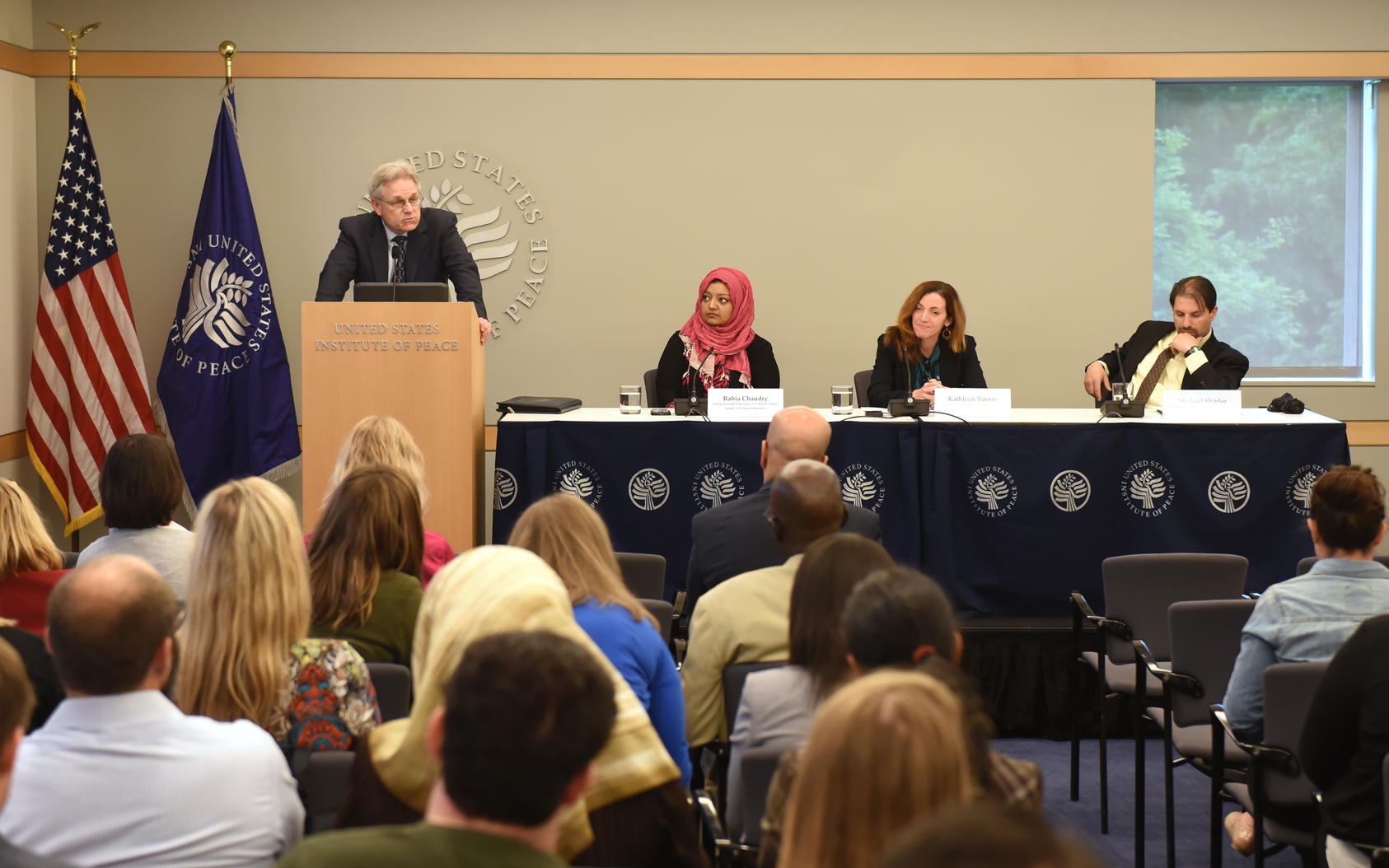Women, Social Media and Violent Extremism
A Discussion of the Conflict Prevention and Resolution Forum
As a growing number of women engage in violent extremism, urgent questions about their recruitment and motivations are yet to be answered, particularly on the role of social media. Extremist organizations such as the Islamic State are adept at using social media messages to attract Western followers. Less clear is what tools can be used to deter recruitment when female extremists are taking a bigger part in orchestrating these campaigns. On May 10, the Conflict Prevention and Resolution Forum held a discussion at the U.S. Institute of Peace on women, social media and extremism.

In the view of many analysts, coercion is the reason most women join violent extremist groups, insurgencies and revolutionary organizations. There are, however, more sophisticated, nuanced and complex explanations such as a search for identity and sense of belonging. At the forum, a panel of experts considered these motives and the means to address them online in the context of countering violent extremism. Continue the conversation on Twitter with #CPRF.
Speakers
Rabia Chaudry
Jennings Randolph Senior Fellow, U.S. Institute of Peace; Founder, Safe Nation Collaborative
Michael Shipler
Asia Regional Director, Search for Common Ground
Kathleen Turner
U.S. Army War College Fellow, U.S. Institute of Peace
The Conflict Prevention and Resolution Forum has provided a monthly platform in Washington since 1999 for highlighting innovative and constructive methods of conflict resolution. The forum aims to (1) provide information from a wide variety of perspectives; (2) explore possible solutions to complex conflicts; and (3) provide a secure venue for stakeholders from various disciplines to engage in cross-sector and multi-track problem solving. The forum is traditionally hosted at Johns Hopkins University’s Nitze School of Advanced International Studies (SAIS) and organized by the Conflict Management Program in conjunction with Search for Common Ground and is co-sponsored by a consortium of organizations that specialize in conflict resolution and/or public policy formulation.



